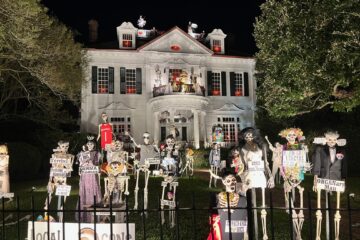Ask a Tenant Lawyer: What to Know Before Signing a Lease in San Francisco
Ask a Tenant Lawyer is your chance to learn how to survive as a renter in San Francisco. Tenant’s Rights Attorney Daniel Wayne represents residential tenants in landlord/tenant disputes in the Bay Area. Have a landlord-tenant question you’d like to see covered? Send an email to alex@brokeassstuart.com and we’ll forward it on!
You finally found a place that you love, the price is right and they actually responded to you and offered you the unit. Time to sign the lease and move in right? Not so fast. Before you go signing a new lease, make sure you have done your homework. Below are some considerations that every tenant should think about before signing a new lease.
What is the Building’s History?
Did you know that you can look up properties on the San Francisco Planning Department’s website and see if there have been problems with the building? Yep. The Planning Department has a website that allows you to see the complaint history with the Department of Building Inspection and permit history. This is a great way to learn about whether the building has a history of poor management, mold/mildew, water leaks, and other problems. If you see that the building has a history of Notices of Violation (“NOVs”) that is a good sign to steer clear.
Is the Owner or Property Manager Sketchy?
You’ve heard the horror stories about nightmare landlords in the Bay Area, but did you know you can look them up on the county court’s website to see if they’ve been sued before? In San Francisco, the Superior Court website is free to access, and you can search by party name to see if your landlord or property management company has been sued and even access the documents. Before you commit yourself to living in their building find out what you’re getting yourself into. If you see that they’ve been sued by former tenants for building code issues, failure to repair, harassment or other problems, you might be better off walking away.
The good folks at the Anti Eviction Mapping Project have also put together an resource known as “Evictorbook” for researching landlords throughout the Bay Area.
Local Journalism for Working stiffs
We write for the poets, busboys, and bartenders. We cover workers, not ‘tech’, not the shiny ‘forbes 100 bullshit’. We write about the business on your corner and the beer in your hand. Join the Bay's best newsletter.
Is the Apartment Legal?
Just because your potential landlord listed the apartment for rent does not mean that it is safe to live in or even that they have a right to rent it out. Using the Planning Department website mentioned above, you can also determine how many legal units are in the building. Looking at renting an in-law / basement apartment in an house and see only one unit listed online on the property map? Chances are that the basement unit was built without permits and is not up to code. These units often have safety issues and are more prone to water leaks, mold and pest infestations due to shoddy workmanship.
Is the Building Covered by Local Rent and Eviction Control?
Not all buildings and homes are created equal. In San Francisco the majority of condos and single-family homes do not have rent control, while multi-unit buildings that were built prior to 1979 do. Likewise, buildings built after 1995 are exempt from eviction control in San Francisco. Double check when the property was built and what kind of property it is (condo vs. apartment for example) to make sure you know your rights going in.
Are there Smokers “Grandfathered” into the Building?
While buildings are now generally non-smoking, there are still places where tenants moved in prior to smoking bans that will chain smoke in their apartment. Before you move in and discover that your place reeks of smoke, double check that there aren’t any tenants like that living in the building if that’s something that is a deal breaker for you.
How are Utilities Handled?
Does your landlord cover certain utilities as part of the rent, or will you need to cover those yourself? Are there separate meters for electricity/gas/water? If there are not separate meters be sure you have a clear understanding of how and when you will be billed for your share of utilities. Your landlord is required to provide you with the actual invoices if the utilities are in their name and divided among the tenants. This can often lead to problems down the road when there are unequal numbers of tenants in different units all sharing the utilities.
Having a solid understanding of your new home and your rights as a tenant can help avoid many landlord-tenant disputes and ensure that you find the place that is right for you. If you believe your landlord has violated your rights, you could have legal options for holding them accountable. Contact a tenant lawyer or go and speak with a counselor at the San Francisco Tenant’s Union to find out more about what you can do.

Howdy! My name is Katy Atchison and I'm an Associate Editor for Broke-Ass Stuart.
I want to take the time to say thank you for supporting independent news media by reading BrokeAssstuart.com. Supporting independent news sources like Broke-Ass Stuart is vital to supporting our community because it amplifies the voices of a wide variety of diverse opinions. You also help support small businesses and local artists by sharing stories from Broke-Ass Stuart.
Because you're one of our supporters, I wanted to send over a pro-tip.
Our bi-weekly newsletter is a great way to get round ups of Broke-Ass Stuart stories, learn about new businesses in The Bay Area, find out about fun local events and be first in line for giveaways.
If you’d like to get our newsletter, signup right here, it takes 5 seconds.







